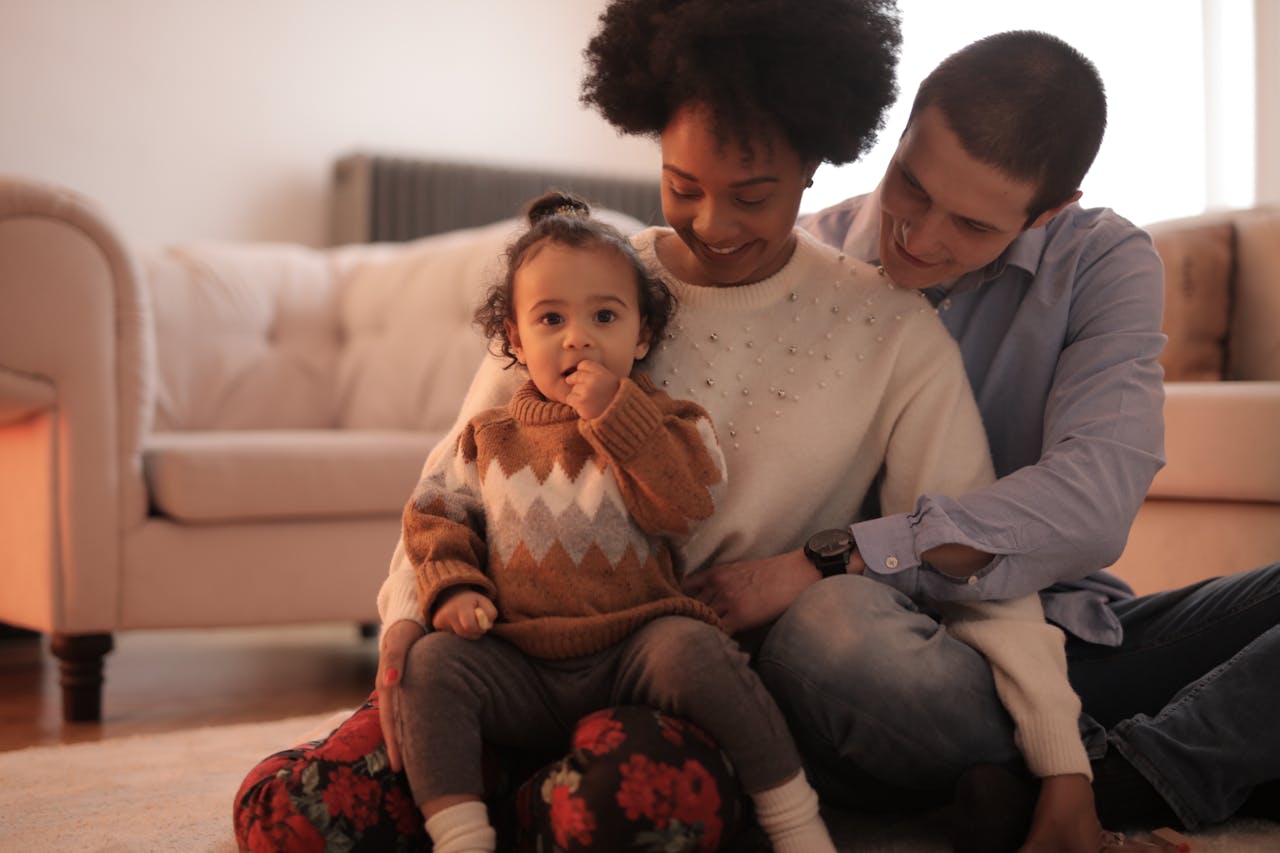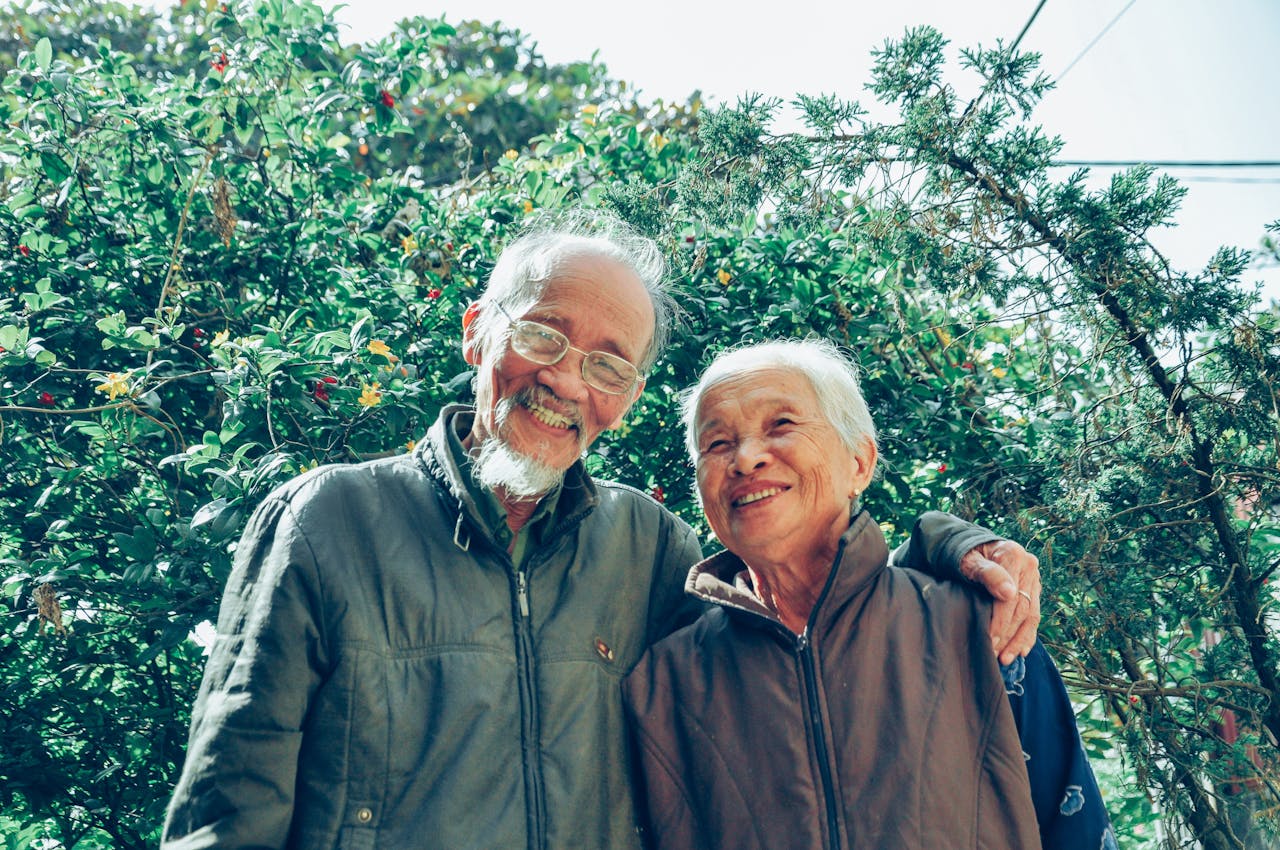When people hear the word “love,” most immediately think of one big, all-consuming feeling.
That soulmate kind of love — the romantic ideal that’s supposed to do it all.
The love that thrills us, comforts us, makes us feel seen, desired, secure, and happy all at once.
It’s the love that fills your chest with butterflies and keeps you awake at night.
And maybe even the one who reminds you to buy oat milk when you forget.
No pressure, right?
But what if love isn’t a single thing?
What if it was never meant to fit inside just one box?
Welcome to one of the most liberating ideas in the world of ethical non-monogamy (ENM):
There are many types of love — and you don’t have to get them all from one person.
This simple realization can completely transform how you relate to yourself, your partners, and the beautiful messiness of connection.
Let’s dive in.
Key Takeaways
- Love is multifaceted. There are many types of love — romantic, intellectual, sexual, companionate, supportive, and transformational — each valid and valuable in its own way.
- ENM embraces diversity in love. Ethical non-monogamy allows you to experience and express different loves freely without expecting one partner to fulfill every need.
- Open communication is essential. Naming and discussing the various forms of love with your partners builds trust, understanding, and deeper connection.
The Myth of the “One True Love”
Our culture — through movies, songs, and fairy tales — often sells us the idea of “The One.”
This myth suggests there is a perfect person out there who will fulfill every single one of our needs.
Those needs include:
Emotional support — the person who comforts you when you’re down, understands your fears, and celebrates your victories.
Sexual satisfaction — the one who sets your heart and body on fire.
Intellectual stimulation — the person who challenges your thoughts, sparks lively debates, and expands your horizons.
Spiritual connection — someone who shares or supports your deepest beliefs and values.
Social companionship — the partner who is your best friend, your plus one at every party, and your biggest cheerleader.
And yes — even logistical help — because, let’s be real, someone’s gotta remember the groceries, pay the bills, and handle the “adulting” stuff.
This all-or-nothing ideal sounds dreamy and romantic, but it can also be deeply exhausting.
Trying to fit all your love needs into one relationship is a huge, heavy expectation.
And honestly? It’s often unrealistic.
Because humans are complex.
Our needs evolve.
Our feelings change.
And no one person can be everything to us all the time.
One of the biggest gifts of ethical non-monogamy is the permission to experience and express love in many different forms.
Sometimes, those forms overlap beautifully in the same relationship.
Sometimes, they stand on their own — in different connections, with different people.
And all of those forms are equally valid.
This permission is more than just practical.
It’s a radical act of honesty — with yourself and with your partners.
It’s about naming the love you feel, as it is, without trying to squeeze it into a pre-defined shape or societal expectation.
By doing this, you open the door to more authentic relationships — relationships based on truth, respect, and openness rather than pressure or pretending.
And that is the foundation of a healthy ENM lifestyle.

So… How Many Types of Love Are There?
The idea that love has many faces isn’t new.
Even the ancient Greeks understood this — they had eight different words for love, each describing a unique flavor or quality.
While ENM folks might not always be quoting Plato on their dates, the wisdom behind this is still incredibly relevant:
Love is multifaceted.
It’s not just one feeling or one kind of bond.
It’s a complex, beautiful spectrum.
And the more we embrace this, the richer our experience of love becomes.
Here are some of the most common types of love you might recognize on your ENM journey:
💞 Romantic Love
This is the kind of love that makes your heart race.
That electrifying spark that wakes you up with excitement.
The butterflies fluttering in your stomach whenever you see or think about that special person.
It’s the feeling that has you glued to your phone, texting back and forth even when you’re exhausted.
Sometimes this is called New Relationship Energy (NRE) — that thrilling, intoxicating newness when everything feels fresh, bright, and full of possibility.
But romantic love isn’t just about the early butterflies.
It can also be a slow-burning, deep affection.
The kind that grows stronger as you build a life, share routines, and create memories together.
In the world of ENM, it’s totally possible — and perfectly natural — to experience romantic love with more than one person, sometimes all at once.
And that’s not only okay — it’s beautiful.
Because romantic love doesn’t have to be exclusive or limited.
It can be diverse, expansive, and shared across multiple relationships.
This challenges the idea that love is a finite resource.
Instead, it’s a well that can deepen and multiply, as long as there’s honesty and consent.

🧠 Intellectual Love
This is the kind of love that lights up your mind.
It’s the connection that sparks curiosity and makes you feel mentally alive.
This love comes from the person who challenges your thinking — not by tearing you down, but by inviting you to see the world in new ways.
They’re the one who gets your obscure references — those inside jokes and niche interests that most people don’t understand.
They debate your wild ideas with enthusiasm and respect.
They push you to expand your horizons and grow into a better version of yourself.
Sometimes, this person might not be your romantic partner or your sexual partner.
But their presence profoundly enriches your life.
They engage your intellect and stimulate your imagination.
In the ENM lifestyle, recognizing intellectual love means honoring these kinds of connections for what they truly are.
It means giving space to relationships that nourish your brain and soul, even if they don’t fit the typical romantic or sexual mold.
Because love is not just about hearts and bodies — it’s about minds meeting and thriving together.
This love can create deep emotional intimacy, sometimes rivaling or complementing romantic bonds.
It fosters mutual respect, admiration, and inspiration.
And it reminds us that connection can be a beautiful dance of ideas, laughter, and shared discovery.

🛋️ Companionate Love
Think of this love as the cozy, reliable presence in your life.
The kind of love that feels like home.
It’s steady, comfortable, and deeply reassuring.
Companionate love might come from a long-term partner, a best friend, or someone you share everyday life with.
This is the person you call when everything feels chaotic or messy.
They’re your anchor in storms.
They listen without judgment.
They show up, again and again.
With companionate love, you build traditions, routines, and shared memories.
It’s the kind of love where silence together feels as good as laughter.
In the ENM world, companionate love often blurs with other forms of love, but its hallmark is steadiness and deep friendship.
It’s a love rooted in trust, loyalty, and shared history.
Unlike the fiery passion of new romance, companionate love offers peace and security.
It reminds us that love isn’t always about excitement — sometimes, it’s about feeling safe and understood.
This love sustains us over the long haul.
It supports us through life’s ups and downs.
And it provides a foundation from which all other loves can flourish.

🔥 Sexual Love
Not every loving connection is romantic or deeply emotional — and that’s completely normal.
Sexual love or erotic connection can be its own powerful and valid form of love.
It’s about the chemistry, the physical attraction, and the intimacy that happens in the body.
Sometimes the sexual connection is intense, electric, and undeniable.
Other times, it can be gentle, comforting, or even playful.
Importantly, sexual love does not always require a deep emotional or romantic bond.
And in ENM, this is totally okay.
You get to enjoy sexual connections without the pressure to turn them into something else.
There’s no rule that says every sexual partner has to be a soulmate or best friend.
Sexual love is about pleasure, exploration, connection, and sometimes just fun.
It’s about honoring your body’s desires and respecting those of your partners.
This form of love encourages honest communication about boundaries, consent, and expectations.
By recognizing sexual love as its own category, ENM allows you to embrace desire fully and freely.
It frees you from guilt or shame around having multiple sexual partners.
And it invites you to create safe, respectful, and joyful sexual experiences.

🛟 Supportive Love
This is the love of your safety nets.
The people who show up when life feels hard.
They’re the ones who bring you soup when you’re sick.
The ones who hold space when your heart breaks or when you’re overwhelmed.
Supportive love is about presence, care, and empathy.
These people might not be your lovers or even your closest friends.
But their love is no less real or important.
They remind us that love isn’t only about romance or sex.
It’s about the simple, profound act of caring for one another.
In the ENM lifestyle, supportive love is a powerful force.
It creates a foundation of trust and emotional safety that underpins all other relationships.
It can come from chosen family, friends, mentors, or community members.
This love offers comfort in hard times and joy in everyday moments.
It’s a reminder that love is also about being there — consistently, compassionately, and without conditions.
When we honor supportive love, we expand our understanding of what connection really means.
🌿 Transformational Love
This is the kind of love that cracks you open.
It challenges you at your core.
These relationships don’t just feel comfortable or safe — they often push you into uncomfortable territory.
They make you question your beliefs, your patterns, and even your identity.
Transformational love invites you to see yourself differently.
It shines a light on parts of you that may have been hidden or ignored.
Sometimes, these relationships are fleeting — a powerful but brief encounter that leaves a lasting impression.
Other times, they change the trajectory of your life entirely.
They might inspire you to grow, heal, or take new paths.
In ethical non-monogamy, we learn to embrace transformational love fully.
Even when it’s messy, painful, or confusing.
Because growth rarely happens without discomfort.
This love can be a catalyst for self-discovery, renewal, and deeper connection.
It reminds us that love is not always about comfort — sometimes, it’s about breaking down walls to build something stronger inside.
By welcoming transformational love, ENM opens space for evolution — both within relationships and within ourselves.
Why ENM Makes Space for All These Loves
When you embrace ethical non-monogamy, you give yourself permission to experience and express love in all its forms.
You stop expecting one partner to meet every need.
You release the guilt that can come from wanting different things from different people.
You start to see love as a kaleidoscope — a vibrant, ever-shifting mosaic of colors and shapes.
This mindset helps create healthier, more honest, and more fulfilling relationships.
It encourages you to be authentic about your feelings and desires.
It allows for more nuanced connections that better reflect your true self.
Moreover, ENM helps you become more compassionate — not only toward others but toward yourself.
You learn to honor your own needs without shame.
You practice empathy, patience, and open communication.
By making space for multiple kinds of love, you enrich your life with diversity, depth, and joy.
And you build a network of relationships that support you in many different ways.
That’s the power and beauty of love — especially in the ENM lifestyle.

What Happens When We Mix These Loves?
In ethical non-monogamy, your relationship map might start to look like a beautiful constellation.
Each connection is like a shining star — unique but part of a larger pattern.
You might have one partner who is your romantic soulmate.
The person who makes your heart skip a beat and fills you with warmth and tenderness.
Another partner might be your intellectual equal.
Someone who sparks your curiosity, challenges your ideas, and expands your mind.
And yet another might be your sexual adventurer.
The person who brings excitement, playfulness, and electric chemistry into your life.
Some partners might overlap in more than one category.
Maybe your romantic soulmate is also your intellectual equal.
Or your sexual adventurer is a great source of emotional support.
Others might fit neatly into one specific category.
And all of this diversity is beautiful.
This variety allows you to build a rich, complex love life.
One that reflects your full, multi-dimensional self.
You get to experience the many facets of love without forcing everything into a single mold.
By mixing these loves, you create a vibrant ecosystem of connection that meets your different needs in different ways.
This is one of the most freeing and fulfilling aspects of ENM.
It lets you fully embrace your complexity as a lover, friend, and human being.
How To Talk About These Loves with Your Partners
Naming the types of love in your life can feel deeply vulnerable.
It requires opening your heart and mind in ways that might feel unfamiliar or risky.
You might worry about being misunderstood or judged.
Or fear that your partner might feel less important.
But this vulnerability is also incredibly empowering.
When you name your feelings, you take ownership of your experience.
You create space for authenticity and honesty.
And you invite your partners into a deeper, more nuanced understanding of your relationships.
Here are some practical tips to guide these conversations:
Be open and curious about your feelings.
Take time to reflect on what each love means to you.
Ask yourself questions like: What does this connection bring me? How does it nourish me?
Share your experiences without pressure or expectations.
Express your feelings as your own truth, not as demands or ultimatums.
Allow your partner to process and respond in their own time.
Respect your partners’ feelings and definitions.
Remember that everyone experiences love differently. Their way of loving and understanding might not match yours exactly, and that’s okay.
Love isn’t a competition — it’s an expansion. There is room for many loves to coexist and grow.
No one’s love diminishes another’s. Use these different love types to build trust and understanding.
Clear language about your connections helps reduce confusion and anxiety.
It fosters empathy and strengthens your emotional bonds.
When you communicate openly about the many faces of love, you create relationships that are more resilient, joyful, and fulfilling.

Final Thoughts: You Don’t Have to “Choose One”
One of the most freeing and beautiful things about ethical non-monogamy is this:
You don’t have to limit yourself to just one kind of love.
You don’t have to squeeze your complex heart into a tiny box or fit into narrow societal expectations.
You get to explore, celebrate, and honor the many ways that love shows up in your life.
Whether it’s romantic, sexual, intellectual, companionate, supportive, or transformational, each kind of love adds something unique and valuable.
Because love, at its core, is expansive — just like you.
It’s vast, fluid, and endlessly creative.
When you embrace this truth, you open yourself up to a richer, fuller experience of connection and joy.
Your heart has infinite capacity.
And you get to fill it with all the beautiful colors of love that feel right to you.
FAQ on Types of Love
What if I feel jealous when I experience different types of love with multiple partners?
Jealousy is a normal and common emotion, especially when navigating multiple relationships. Instead of suppressing it, try to acknowledge your feelings without judgment. Open, honest communication with your partners can help you explore the root causes of jealousy, whether it’s fear of loss, insecurity, or unmet needs. Working together to build trust and emotional safety makes jealousy easier to manage.
How do I balance my time and energy between different kinds of love?
Balancing time and energy requires intentionality and clear boundaries. Reflect on your priorities and communicate them honestly with your partners. Recognize that different types of love might demand different levels of attention, and that’s okay. Make sure to include self-care as a priority — you need to be well to support healthy relationships. Flexibility and ongoing communication help maintain a sustainable balance.
Can sexual love exist without any emotional connection at all?
Yes, sexual love can absolutely exist as a primarily physical connection focused on pleasure, intimacy, or exploration, without necessarily involving deep emotional or romantic feelings. In the ENM context, this is often acknowledged and respected as a valid form of love or connection, allowing people to experience sexuality freely without pressure to develop romantic bonds.
How do I explain the concept of multiple types of love to someone unfamiliar with ENM?
A helpful way is to use relatable examples: like how you might have friends who fulfill different needs — one you share hobbies with, another who supports you emotionally, and another you trust for advice. Emphasize that love is not one-size-fits-all and that ENM allows people to experience and express these different loves authentically, often with different partners.
Is it possible for one relationship to evolve and encompass several types of love over time?
Definitely. Relationships are dynamic and fluid. What starts as primarily sexual or intellectual can grow into romantic or companionate love over time. Partners may develop deeper emotional intimacy, build shared life routines, or support each other in new ways, blending different types of love naturally as they grow together.
How do cultural or personal beliefs affect how we experience and express different loves?
Cultural and personal beliefs shape our expectations, comfort levels, and language around love. They influence how we interpret feelings and what kinds of relationships we see as acceptable or desirable. Being mindful of these influences allows you to approach your relationships with greater empathy and openness, and to challenge limiting beliefs that might block authentic connection.
What if my partners don’t agree on the definitions or importance of different types of love?
It’s common for people to have different understandings of love. The key is to maintain respectful dialogue and accept that experiences of love are personal and diverse. Focus on listening carefully, honoring each other’s feelings, and finding common ground that supports everyone’s emotional needs, even if your definitions don’t perfectly align.
Can these types of love change or shift as my relationships grow or change?
Yes, love is inherently fluid and evolving. Relationships often shift as partners learn more about themselves and each other. Connections can deepen, transform, or even fade, reflecting personal growth and changing life circumstances. Being open to this natural evolution helps keep relationships honest and fulfilling.
How do I maintain healthy boundaries across different types of love and relationships?
Healthy boundaries come from clear, honest communication and self-awareness. Regularly check in with yourself to understand your needs and limits. Discuss boundaries openly with your partners and be willing to renegotiate them as relationships evolve. Boundaries create safety and respect, which are essential for trust and long-term connection in ENM.

Anna is an anthropologist with a passion for Ethical Non-Monogamy (ENM) and gender and sexuality studies. Through ENM Living, she shares research-based insights and informative content to help others explore and navigate alternative relationship models. Anna is dedicated to creating an inclusive space that celebrates love in all its forms and supports those navigating the complexities of ENM.





